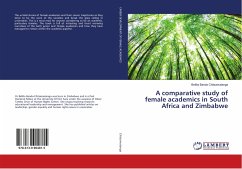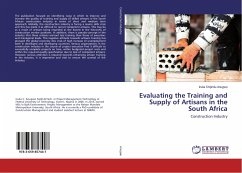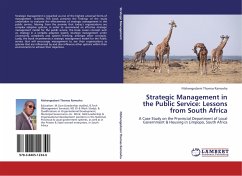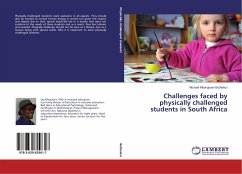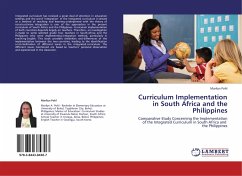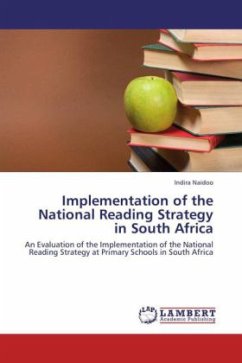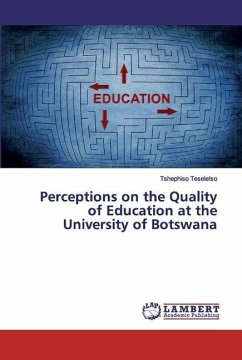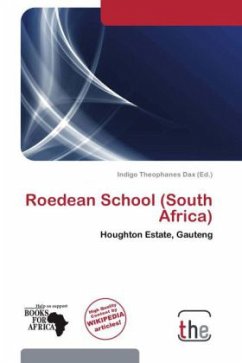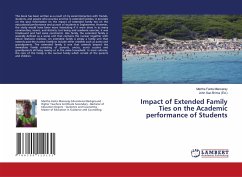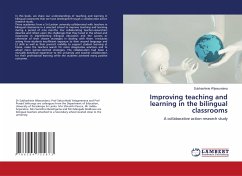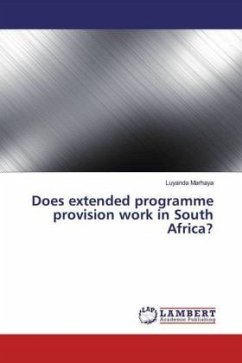
Does extended programme provision work in South Africa?
Versandkostenfrei!
Versandfertig in 6-10 Tagen
55,99 €
inkl. MwSt.

PAYBACK Punkte
28 °P sammeln!
RSA government, through its various policies, after the 1994 democratic dispensation, ensured that there is a focus on access to higher education to all races, and discontinue the discrimination that had engulfed the apartheid era where universities were designated for different racial groups. Following these changes, there has been a huge interest to access higher education from diverse racial groups, especially, black students. The topic of access has been followed by what researchers' term 'a revolving door syndrome'. This is a scenario whereby the numbers seen at the point of access are no...
RSA government, through its various policies, after the 1994 democratic dispensation, ensured that there is a focus on access to higher education to all races, and discontinue the discrimination that had engulfed the apartheid era where universities were designated for different racial groups. Following these changes, there has been a huge interest to access higher education from diverse racial groups, especially, black students. The topic of access has been followed by what researchers' term 'a revolving door syndrome'. This is a scenario whereby the numbers seen at the point of access are not necessarily followed by success in terms of throughputs in all public universities. Over the years, higher education institutions, together with the national government department responsible for higher education have devised creative measures to mitigate this phenomenon. All universities have had to establish some forms of extended programmes that serve as a preparatory phase for studentswho are deemed ill-prepared for higher education. For the first time, in the history of RSA, this book provides a thorough analysis of these programmes and further suggests a model for better provision.



